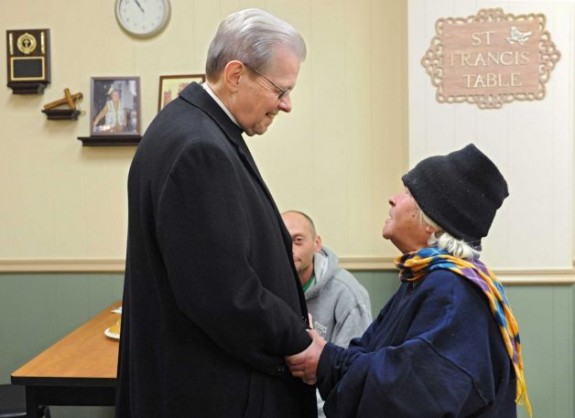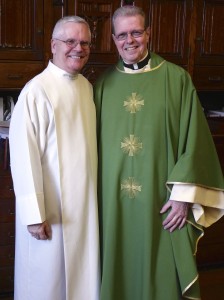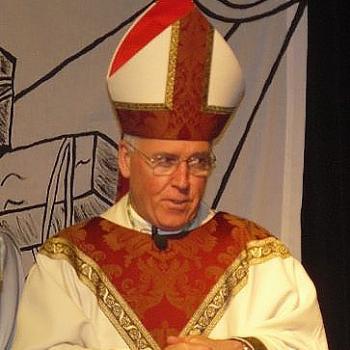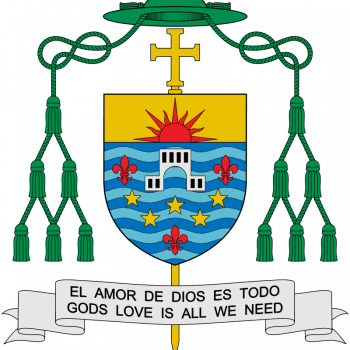Photo:Lori Van Buren / Times Union
I couldn’t have put it better myself. Those words from another Brooklyn deacon capture Albany’s bishop-elect Ed Scharfenberger perfectly. He will be installed as Albany’s new bishop today—EWTN, among others, will be carrying the installation, starting at 2 pm. Last weekend, his new hometown paper, the Albany Times-Union, paid a visit to the Queens neighborhood that Ed Scharfenberger called home:
Maureen Bieber, a 67-year-old homeless woman bundled in layers beneath a baggy navy blue sweatshirt and a black wool knit cap with an I Love New York logo, was one of the first people through the door at the St. Matthias Church‘s soup kitchen and food pantry when it opened for lunch on a recent windswept, wintry day in the Ridgewood section of Queens.
Red-faced with bloodshot eyes, she trailed stale odors and flashed a toothless grin as she made a beeline to greet her old pastor, Monsignor Edward B. Scharfenberger, bishop-elect of theAlbany Catholic Diocese.
She reached out to hug Scharfenberger, dressed in a black cleric’s suit with a heavy silver crucifix on a chain around his neck. He bent his 6-foot frame down low to accommodate the tiny woman, who stood about 4-foot-10. He clutched her weathered hands as she recalled memories of past priests in the parish both of them knew from growing up in this grid of unadorned brick apartment buildings and sturdy row houses. It is a vibrant and diverse working-class neighborhood that hugs the border with Bushwick, Brooklyn.
Scharfenberger, 65, who will be installed as Albany’s 10th bishop and successor to BishopHoward J. Hubbard at an ordination ceremony Thursday at the Cathedral of the Immaculate Conception, is a product of these hardscrabble streets. As he rose up the pastoral ranks, he never lost sight of the hardships of newly arrived immigrants struggling to make their way in a strange land or the psychic pain of folks adrift with no place to call home. His empathy is reflected in the arc of his own family’s emigration from Germany and stories he heard growing up of the stigma of being foreign-born and discrimination against his maternal grandfather, a Russian Jew who fled pogroms in Kiev.
It was clear that the man they call Monsignor Ed is their shepherd and they are his flock, unconditionally. Several at the soup kitchen had spent the night huddling under highway overpasses or flopping in crummy boarding houses and battling demons of drink and drugs and troubled minds. Scharfenberger, who speaks five languages, moved easily between English, Spanish, German and Polish in conversations with them.
“We’re all lost souls here,” said Jerry Esposito, 49, who grew up around the corner, was let go from his job as a janitor and fell into an alcoholic haze. He was homeless for more than a decade and sought shelter under a railroad trestle. He said Scharfenberger helped him get cleaned up and convinced him to move back into his mother’s apartment. “Monsignor Ed is a good man. He helped a lot of us get off the streets.”
Read it all. Ad multos annos, Bishop Ed!













